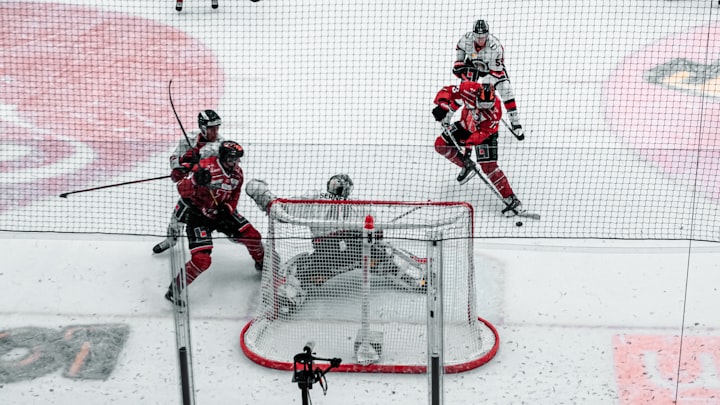Recording
Everything I know about recording I learned the hard way

Everything I learned about recording I learned the hard way. By being forced to be a techie when I’m really an artsy-fartsy. There is definitely a school of thought out there, perpetuated no doubt by the techies, that all this high tech recording gear is way over our heads and we can’t do it without them. This is totally not true. The Beatles had technology equivalent to a $400 cassette 4-track and look what they accomplished.
Technology is a tool for the musician and subordinate to the artist. In other words, I tell the machine what to do and not the other way around. Considering that many studios have gone back to analog recording, after a couple decades of frustration trying to make digital gear sound like analog, it is no surprise that technology has only taught us what we already knew: great artists make great art. Great technology is just another tool for the use of the artist.
Even the best hip-hop and techno-pop artists became the best because they mastered the technology and not because they plugged in a Mac and two hours later burned a hit song to disc. I have heard it said by detractors of electronic music that, “any idiot can use a computer to make music”, and that these artists are not “real artists” because they don’t play any instruments. In order to record your own music, you have to be more than just a guitar player. You need to be an arranger, a composer, an editor, an engineer, a producer and have a fundamental grasp of how all the instruments are played and this can take years.
Here are a few things I have found to be invaluable in making quality recordings in your own home, assuming you have a limited budget and want professional results. If you have an unlimited budget, you can pay someone else to do it for you. (You won’t learn as much however as us down-and-dirty guys who roughed it out over the years.)
1. Get a good microphone and pre-amp. Preferably a condenser mic and a tube pre-amp. Miracles can be accomplished with a high quality mic. A tube pre-amp is indispensable because it adds natural compression, warmth and depth to everything it records.
2. Record flat with no eq or reverb, especially with vocals. You want to record the raw unadulterated sound.
3. Use two mics for recording instruments. If one doesn’t capture all the frequencies, the other will. You can pan one mic left and the other right in the mix. If you really want to get funky you can add a room mic. This also will add that beloved three dimensional depth if you use three tracks.
a) When recording acoustic guitars use either the XY pattern favoured by studios, or place one mic about 12 inches from the body preferably from above pointing towards the sound hole. Place the second mic at the stock also pointing towards the sound hole. Experiment with placement until you are satisfied. For amps and acoustics the reliable Shure SM57 is still a great choice.
b) When recording electric guitars, place one mic about two inches in front of the amp at a 45 degree angle pointed in between the center cone and the edge of the speaker. Place one mic at the other end of the room. This will enhance the big guitar sound we all love.
4. If you have just one mic, place it half way between the center cone and the outer edge of the speaker. Put it right up the grill, usually on an angle toward the cone. If you put it to close to the cone it will give a dry, overly treble sound and too far out to the edge it will sound too bassy.
5. Plug the bass right into the pre-amp or sound board and record away.
6. When recording drums, mic every piece and place two overhead condenser mics about two feet over the drummer. Without the overheads the drums will sound cheap and flat. Most of us low-budgeters don’t do drum recording because you need about $2000 in mics, an additional 8-10 tracks and a big space. We do the intelligent thing and go do the drums in a pro studio. However, if you have a nice room, preferably with hard wood floors, and you are adept at recording, go for it. And again don’t worry too much about eq and reverb, that can all be taken care of in the mix. If you still want to record your drums the most basic setup would be a kick and a snare mic with two overheads.
7. And speaking of mixing: Get someone else to mix it down for you. Someone who has never heard the music before. His or her objectivity will pay off in the long run. A really good engineer can act as your editor and post production arranger.
8. Record electric guitars and vocals twice in the chorus to make the chorus sound thicker and stand out more. Use a DI when recording electric guitars. Send the clean guitar single to one track and record the amp sound to a second track. That way in the mix, it is possible to add or subtract effects to the clean track without degrading the integrity of the original live guitar sound.
9. If you are going to mix it yourself, your three main tools are compression, eq and reverb. Use all three sparingly.
10. The best way to record on a budget is to do the drums, guitars and bass live off the floor in a studio and then take those tracks home and do the overdubs and vocals with your pc.
Eq, Reverb, and Compression
EQ: Remember eq is taking away frequencies (generally speaking), not adding in. We take away frequencies to make sonic space for other instruments to shine. Adding in more and more tone to make each instrument and vocal sound fat will only result in mud in the final mix.
COMPRESSION: Use “soft-knee” compression, 2:1 or 3:1 It’s not an effect contrary to popular opinion. The grunge movement popularized the overuse of compression, especially on vocals to give that crunchy, high gain sound.
REVERB: As with all effects, the general rule is that a little goes a long way. If you are conscious of the reverb when playing back the song, then you probably have too much. If you want that big sound and add big hall and cathedral reverbs to every part, by the time you are done, you will have a big echoey mess. Adding reverb to certain parts is usually a better method of accenting a song. For example putting a plate reverb on the snare can make the snare stand out nice and punchy and dry.
Another method is to add reverb to the whole kit instead of individual parts to make it sound dynamic and live. Again, there are no set rules, except experience born from trial and error. A really good engineer has a highly developed intuition about what sounds great in the mix.
Guerrilla Recording
If you have a limited budget, say $5000-10,000 and you want a world class quality recording, there are ways to achieve that. Some things cannot be avoided if you want that killer sound. First of all duplicating 1000 cds is going to cost you $2500 roughly depending on what you spend on the artwork or liner notes/lyrics. If you don’t think you can sell one thousand cds of your project, don’t bother spending tons of money on it. Just spend what you can afford and consider your project a demo, even a sellable demo. Nine Inch Nails sold 9000 copies of their homemade demo, so it’s possible to make money without mortgaging your house to finance your project. (And I know musicians who have done just that and got themselves into serious debt.)
Secondly, professional mastering is at least $500 per cd. If someone says they can master your cd for $50, don’t bother, they are not professional and you may as well leave it unmastered. Mastering will normalize all the tracks, making sure the volume of all the tracks is the same. Mastering also will make the tracks shine by adding compression and eq appropriately.
And thirdly, mixing will cost you minimum $1000 for your cd. A pro studio would probably charge somewhere between $5000-10,000 to mix your tracks. Again, if you think you are getting a deal by getting a local guy to mix your tracks on his Mac, chances are you will get what you paid for. The reasons the big studios can charge so much is that they have the pro gear and they have the pros working there. A really good studio got there by reputation, by the big acts recording there and coming out with world class recordings.
So, to make a brief tally of your minimum costs:
Duplication 1000 cds 2500
Mastering 500
Mixing 1000
_____
Total $4000
Now, so far we haven’t done any recording! The best method for getting the biggest bang for your buck is to book about 3-4 days in a decent studio. Doesn’t have to be the best studio in town. A good studio will charge about $300/day. So we will say $1200 for 4 days.
Now rehearse your band or if you are a solo artist, make sure you and your hired guns have got the basic material down. Record your tunes off the floor live. Leave out the vocals. Just get the basic guitar, bass and drums. You could hire a drummer and pro bass player and lay down the basic tracks. That way you have studio quality drum’n’bass tracks and the recording will have that great live sound. It’s hard to get that feel if you do all the recordings by yourself at your home studio or rehearsal space.
Next, take the raw tracks back home and add in the vocals, solos, keys etc. If you are competent at editing you can swap drum parts and build bridges, transitions, whatever you need. Plus you can add in digital samples, loops, anything your little heart desires. Once you have your completed tracks, go back to the studio and get them to mix it. If you get it done at your fav studio and they charge $300/day, they should be able to mix 2 tracks a day. So for a 12 song cd that would be 6 days, or $1800. Also, while you are there, they may make some suggestions and further editing to enhance your project.
So now, for our new budget:
Duplication 1000 cds 2500
Mastering 500
Mixing 1000
Recording 1200
Session players
(bass/drums@ 200/day x 4 days) 800
______
Total $6800
Considering that a low budget world-class recording that a major label would pay for could easily be $50,000, if you spend our estimated $6800 and come up with a killer recording that not only you and your bandmates can be proud of, but also you can sell and promote and hopefully get airplay, fans, management and start your musical career.
And that you also own. That means you don’t have to go into debt to a label who will put you on the hook for thousands of dollars in the studio to get the same results.
About the Creator
Richard Revelstoke
Author, musician, activist. Played in rock bands now into jazz. Lives in Vancouver, Canada working on third novel. www.richardrevelstoke.com






Comments
There are no comments for this story
Be the first to respond and start the conversation.